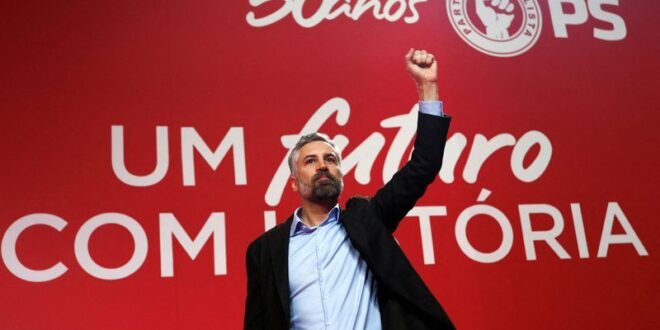LISBON (Reuters) – Portugal’s centre-left Socialist Party (PS) has extended its lead as the favourite to win the most votes in a snap general election on March 10, although it remains far from a parliamentary majority, an opinion poll showed on Tuesday.
There was also a strong jump in voting intentions for the third-placed far-right party Chega (Enough) that could be key to the wider right wing forming a government, according to the survey by Intercampus for newspapers Correio da Manha and Jornal de Negocios.
Socialist Prime Minister Antonio Costa resigned on Nov. 7 over an investigation into alleged illegalities in his government’s handling of several large investment projects. Costa has denied wrongdoing and remains head of a caretaker government.
The PS, now led by 46-year-old former infrastructure minister Pedro Nuno Santos, commanded 26.4% support in the Intercampus poll, up from 25.4% a month ago.
The Democratic Alliance, which encompasses the centre-right main opposition Social Democratic Party (PSD), the conservative CDS-PP and the monarchist party, trailed behind with 20.8%, although in December the PSD alone polled at 22.5%.
Chega, which is already the third-largest force in parliament and has recently moderated its populist, anti-establishment rhetoric, jumped to 16.6% support from 11.6%. The right-wing Liberal Initiative polled at 5.4%.
Left Bloc and the Communists had 7.4% and 3.9%, respectively, with the overall left garnering 37.7%, behind the overall right with 42.8%.
PSD leader Luis Montenegro has ruled out any form of reliance on Chega to govern, and many analysts say a post-election quagmire would ensue without such support, potentially leading to a repeat ballot.
Intercampus surveyed 637 people on Jan. 16-20, with a margin of error of around 4%.
(Reporting by Patrícia Vicente Rua; Editing by Andrei Khalip and Bernadette Baum)
 BeritaKini.biz Berita Viral Terkini di Malaysia
BeritaKini.biz Berita Viral Terkini di Malaysia





